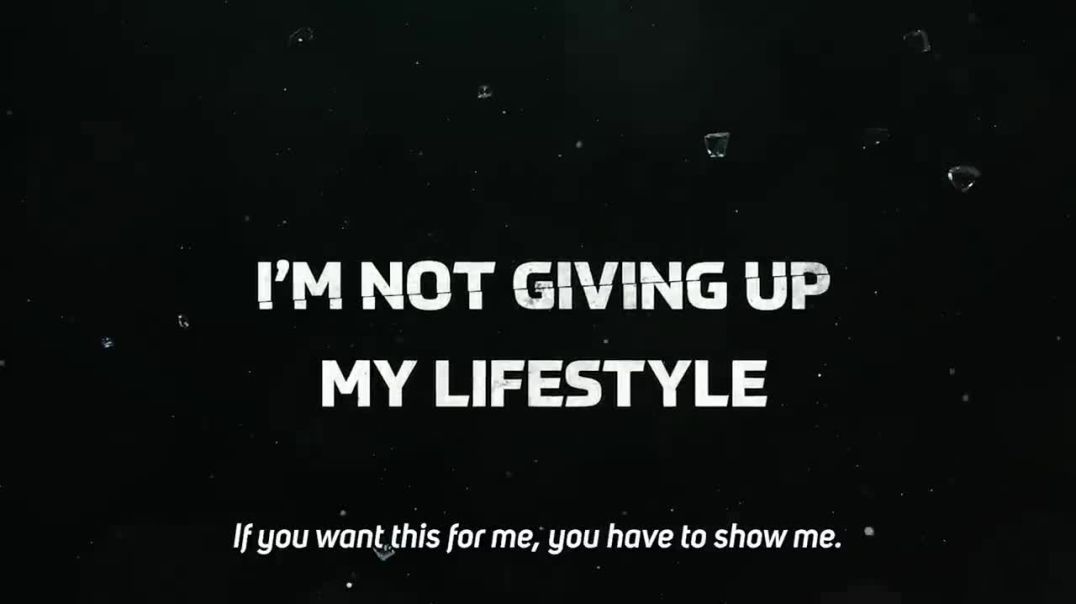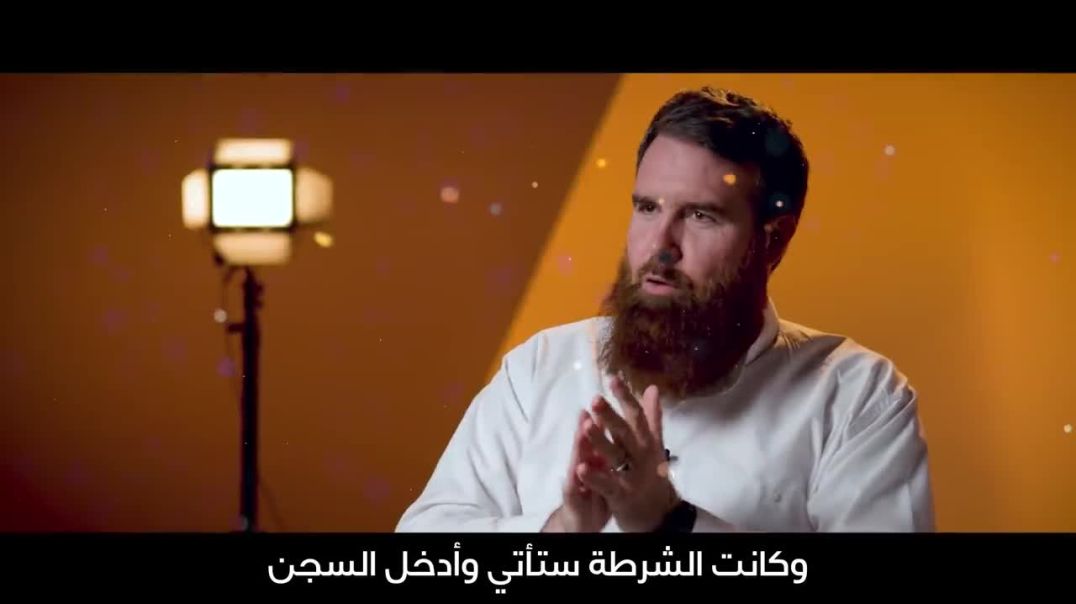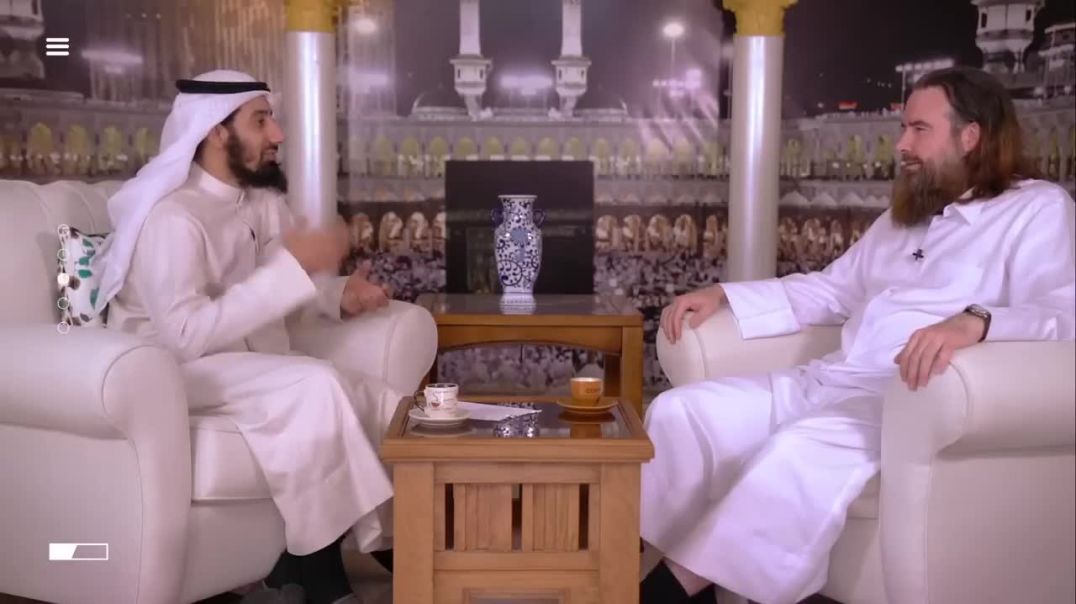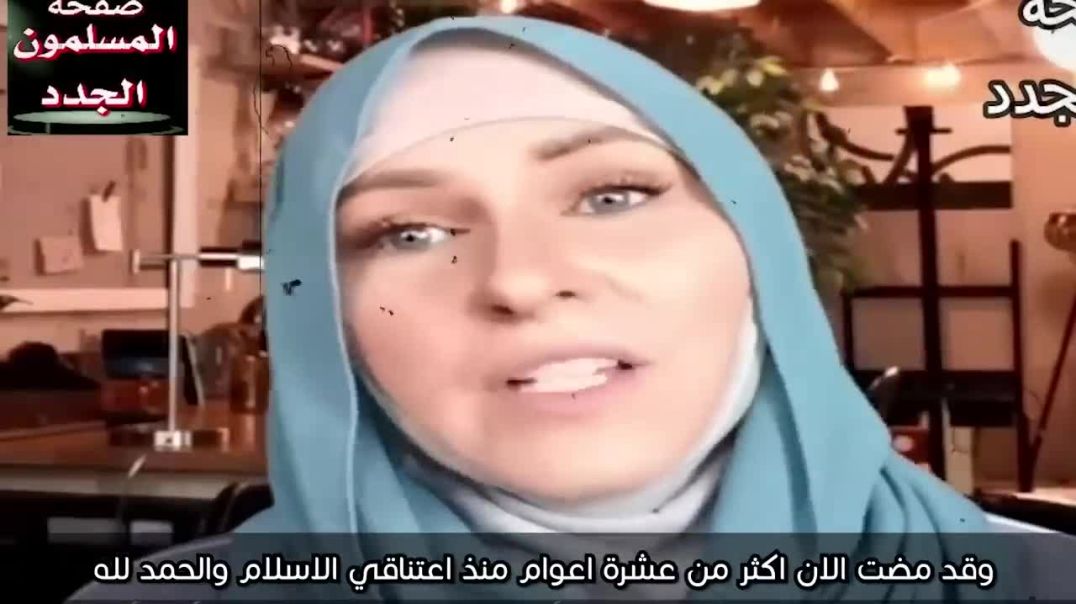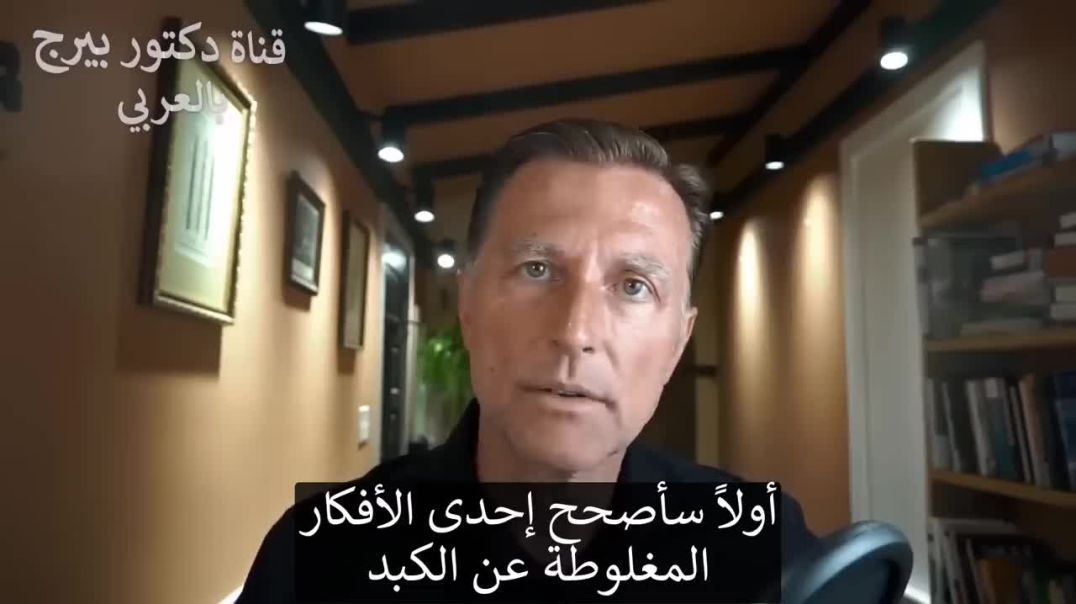Top videos
اشترك الآن على القناة الرسمية للشيخ الشعراوي: http://bit.ly/2NjW77R
شاهد المزيد من تفسيرات الشعراوي: https://cutt.ly/1bM8Xje
-------------------------------------
فضيلة الشيخ محمد متولي الشعراوي
علامات رضا الله عن العبد
Sheikh Muhammad Metwaly Ash-Shaarawi
ىشاهد أيضًا:
- القناة الرسمية للشيخ محمود علي البنّا: http://bit.ly/32qnzGu
- القناة الرسمية للشيخ الحصري: http://bit.ly/2qedRKb
- القناة الرسمية للشيخ طه الفشني: http://bit.ly/36nqP8y
-------------------------------------
#الشعراوي
#تفسير_الشعراوي
#خواطر_الشعراوي
#الشيخ_الشعراوي
#قصص_الانبياء
#قصص_القرآن
#الشعرواي
“I Made a Deal With God” - Emotional Revert Story of Rahim Jung
شريكي في الجريمة قادني إلى الإسلام - قصة تحول لا تصدق لمسيحي سابق
قصة إسلام امرأة سويدية يرويها الشيخ الأمريكي عبدالرحيم مكارثي مؤثر
دخلت المسجد بملابس عارية وحاولت إقناع مسلم أن يدخل المسيحية فحدث ما لم أضعه في خطتي ؟
..
.
..
..
..
Like, Share & Subscribe To Original (Content and Channel).
Original Video: https://youtu.be/kz3fnPLwZ30
---------------------------------------------------------------------------------
Islamabad to Nanga Parbat Base Camp | Malaysian Girl Reactions
----------------------------------------------------------------------------------------------------
#malaysiangirlreactions #reaction #Pakistan #pakistani #pakistanzindabad #pakistanireaction
----------------------------------------------------------------------------------------------------------
FOLLOW US:
Facebook - https://www.facebook.com/MalaysianGirlReactions
Email Address: malaysiangirlreactions1@gmail.com
Copyright Disclaimer: Copyright Disclaimer under Section 107 of the Copyright Act 1976, allowance is made for "fair use"
For purposes such as criticism, comment, news reporting, teaching, scholarship, and research. Fair use is a use permitted by
Copyright statute that might otherwise be infringing. Non-profit, educational or personal use tips the balance in favor of fair use.
Join language enthusiasts Luay and Austin as they delve into the world of Syrian Arabic. Focused specifically on the essential verb "to have." - we break it down into manageable, bite-sized bits.
Luay, a native speaker from Syria, serves as your expert guide throughout the lesson -with Austin, a fellow language learner (as well as linguist and language-teacher), by his side.
During the lesson, Luay and Austin cover various aspects of the verb "to have" in Syrian Arabic, including its conjugation, pronunciation, and usage in different contexts. They demonstrate practical examples, engaging dialogues, and interactive exercises to ensure a comprehensive learning experience.
So, join Luay and Austin on this language-learning journey and discover the beauty and richness of Syrian Arabic. Get ready to gain valuable insights into the Levantine culture and language, empowering you to communicate effectively with native speakers and enhance your understanding of the Arab world.
Arabic with Rana made a nice QandA: 26 QUESTIONS ABOUT SYRIA I LEVANTINE ARABIC I SUBTITLED
https://youtu.be/cqc3baTi_mg
Matt and Julia made a travel video: TRAVELING TO SYRIA IN 2023... (intense!)
https://youtu.be/mKNOirOX1hE
#LearnSyrianArabic #ArabicLanguageLessons #LevantineArabic #LanguageLearning #SyrianCulture #ArabicGrammar #LanguageLessons #BasicArabic #SyrianArabicLesson #ArabicVocabulary #ArabicConjugation #ArabicPhrases #LanguageEnthusiasts #ArabicLearners #linguistics #languageteaching #polyglot
Created by Luay Meray and Austin Howard
Austin Howard Radboud Universiteit Nijmegen (MA), Universiteit Leiden (RA) and Florida State University (PhD student)
Turkey is one of the most scenic countries in the world. Enjoy this 4K relaxation film across the Turkey's most beautiful regions. From the historic city of Istanbul to the stunning Mediterranean coast, Turkey's landscapes have so many places waiting to be explored.
Our other Relaxation films:
Germany Relaxation Film 4K - https://youtu.be/li-_BLtq58w
Switzerland Relaxation Film 4K - https://youtu.be/kVxTrhojpFI
Italy Relaxation Film 4K - https://youtu.be/2b2gJu-g3qE
France Relaxation Film 4K - https://youtu.be/6lxg0NKZjOE
Russia Relaxation Film 4K - https://youtu.be/lyh2kAjcmSY
Spain Relaxation Film 4K - https://youtu.be/YGAsG6_JgAI
Iceland Relaxation Film 4K - https://youtu.be/Pbzn79TSRO0
Norway Relaxation Film 4K - https://youtu.be/CxwJrzEdw1U
Scotland Relaxation Film 4K - https://youtu.be/Mc7XKiNrHQc
Alps Relaxation Film 4K - https://youtu.be/3PZ65s2qLTE
Follow us on instagram @scenicrelaxationfilms
Where we get our music - http://share.mscbd.fm/scenicrelaxation
Great Place for Stock footage - https://bit.ly/38b1EJH
Free stock footage, guides & luts - https://sellfy.com/ryanshirley
Epic Moments in Football...P2
Watch highlights from DE Logan Lee from his time at the University of Iowa
#HereWeGo #Steelers #NFL
Like our content? Want more? Be sure to subscribe to the Pittsburgh Steelers YT Channel: https://goo.gl/nAd4J2
Want more Steelers content? Head over to http://www.steelers.com/ or if you want your #Steelers content to-go, download the official Pittsburgh Steelers mobile app: https://www.steelers.com/fans/....official-steelers-mo
To get the latest Steelers content, news and analysis be sure to follow us on social media!
Follow us on Twitter: https://twitter.com/steelers/
Like us on Facebook: https://www.facebook.com/steelers/
Follow us on Instagram: https://www.instagram.com/steelers/
Follow us on TikTok: https://www.tiktok.com/@steelers
Download Steelers podcasts: https://www.steelers.com/audio/podcast/
أفضل مشروب منزلي لتطهير الكبد من السموم-1
👉 🔴 5,000 LIKE ON " Skills Goals in Training If Weren't Filmed, No One Would Believe It "
►Jackiemt2: https://www.youtube.com/channe....l/UCqs3ObWXixJsFZKOQ
►Follow: https://www.instagram.com/jackiemt8
►Facebook: https://www.facebook.com/JackieMT8/
🚩See Other Videos: https://www.youtube.com/watch?v=TZCVXU-q0IQ&list=PLvWe3LqexBSQaS7o7MKK8LX9ydpD3ltDl
------------------------------------------------------------------
♫ Lensko - Rebirth [NCS Release]
♫ Tobu - Infectious (Original Mix)
♫ Ship Wrek & Zookeepers - Ark [NCS Release]
👉 🔴 5,000 LIKE ON "Football Players Playing as Goalkeepers"
►Jackiemt2: https://www.youtube.com/channe....l/UCqs3ObWXixJsFZKOQ
►Follow: https://www.instagram.com/jackiemt8
►Facebook: https://www.facebook.com/JackieMT8/
🚩See Other Videos: https://www.youtube.com/watch?v=TZCVXU-q0IQ&list=PLvWe3LqexBSQaS7o7MKK8LX9ydpD3ltDl
------------------------------------------------------------------
♫ Lost Sky - Vision
👉 🔴 5,000 LIKE ON " Creative Skills in Football 2020! "
►Jackiemt2: https://www.youtube.com/channe....l/UCqs3ObWXixJsFZKOQ
►Follow: https://www.instagram.com/jackiemt8
►Facebook: https://www.facebook.com/JackieMT8/
🚩See Other Videos: https://www.youtube.com/watch?v=TZCVXU-q0IQ&list=PLvWe3LqexBSQaS7o7MKK8LX9ydpD3ltDl
------------------------------------------------------------------
♫
♫
♫
👉 🔴 5,000 LIKE ON" Unforgettable Goals that cannot be repeated "
►Jackiemt2: https://www.youtube.com/channe....l/UCqs3ObWXixJsFZKOQ
►Music:
♫ https://youtu.be/7BTUj4lFyYU
It is not difficult for you to see deers, birds, squirrels... in a European Forest, I spent a lot of time recording this lovely footage, I also went to the zoo for cases that are pandas are being preserved. Some wildlife species are hard to reach so I bought the footage and put them together. I hope you like it, this video is also suitable for children and students, as teaching materials in schools...
Let me show you my Wildlife animals video from these Trips.
Enjoy this video and Relaxing Music and don't forget to watch
► How are Relaxation Films made? - https://youtu.be/_v4HYffedAo
The content that I humbly record is the nature scenery, My footage is self-recorded and combined with the footage I bought when there wasn't enough time to shoot them
🎹 Richard Nomad
►My device:
Flycam: DJI Mini 3 pro - https://amzn.to/3Iwq7tA
Camera: Sony A6400 - https://amzn.to/3Zj3GyT
Camera: Sony A7siii - https://amzn.to/3KAkTQa
lens: Sony 18-105mm - https://amzn.to/3Ey4NTC
Lens: Tamron 50-400mm - https://amzn.to/3XYx9Nx
Microphones: Lewitt LCT 040 matched pair
Recorder: Tascam DR-60DMKii
►Our song themes skew to senses of Meditation and Healing.
Music: https://soundcloud.com/relaxationfilm
►Donate:
https://www.paypal.com/paypalme/relaxationfilm
►Support a cup of coffee at:
https://www.patreon.com/relaxationfilm
∷∷∷∷∷∷∷∷∷∷∷∷∷∷∷∷∷∷∷∷∷∷∷∷∷∷∷∷∷∷∷∷∷∷∷∷
Website: https://relaxationfilm.com
Instagram: Relaxationfilm
Facebook: https://www.facebook.com/relaxationfilm
Tiktok: https://tiktok.com/@relaxationfilm
Twitter: https://twitter.com/RelaxationFilm
∷∷∷∷∷∷∷∷∷∷∷∷∷∷∷∷∷∷∷∷∷∷∷∷∷∷∷∷∷∷∷∷∷∷∷∷
© Copyright:
Get to know RELAXATION FILM: https://youtu.be/_v4HYffedAo
Music arranged and performed by Richard
Footage licensed from Relaxation Film
Thanks for Listening and Watching.
#4KVideo #animals #wildlife #RelaxingMusic #Nature #4K #4knature #relaxationfilm #peacefulmusic
#4K #RelaxingMuic #Nature #Sleep #RelaxationFilm #Meditation
From great white sharks in South Africa to tiger sharks in the Maldives, scientists are looking to uncover if female sharks are the rulers of the ocean. One scientist finds a shark breaching out of the water, too energetic to tag.
Watch SharkFest on National Geographic and stream on #DisneyPlus https://on.natgeo.com/3xYY2Gc
➡ Subscribe: http://bit.ly/NatGeoWILDSubscribe
#SharkFest #NationalGeographic #SharkQueens
Catch up on SharkFest:
https://www.youtube.com/watch?v=wg9AUJ7oVzs&list=PLNxd9fYeqXeYnwqEx8t3_nxXcioV6Vnjo
More 🦈 Sharks:
https://www.youtube.com/watch?v=qAG2SkTPltw&list=PLNxd9fYeqXebPQ7ZHJWYYrxCVjvPoOuJV
About SharkFest:
On National Geographic and Disney+, viewers this year can sink their teeth into almost 30 hours of original programming and over 60 hours of enhanced content featuring captivating science and stunning visuals of the iconic apex predator. SHARKFEST shines a light on the science of the ocean’s most misunderstood predator, uncovering their true beauty, power and mystery. https://on.natgeo.com/sharkfest
About Nat Geo Wild:
National Geographic Wild is a place for all things animals and for animal-lovers alike. Take a journey through the animal kingdom with us and discover things you never knew before, or rediscover your favorite animals!
Get More Nat Geo Wild:
Official Site: http://bit.ly/NatGeoWILD
Facebook: http://bit.ly/NGWFacebook
Twitter: http://bit.ly/NGWTwitter
Instagram: http://bit.ly/NGWInstagram
Shark Queens | SharkFest | National Geographic WILD
https://youtu.be/mQRgDYwBuXw
Nat Geo Wild
https://www.youtube.com/user/NatGeoWild

